Sleep disturbed: our advice to spend better nights!
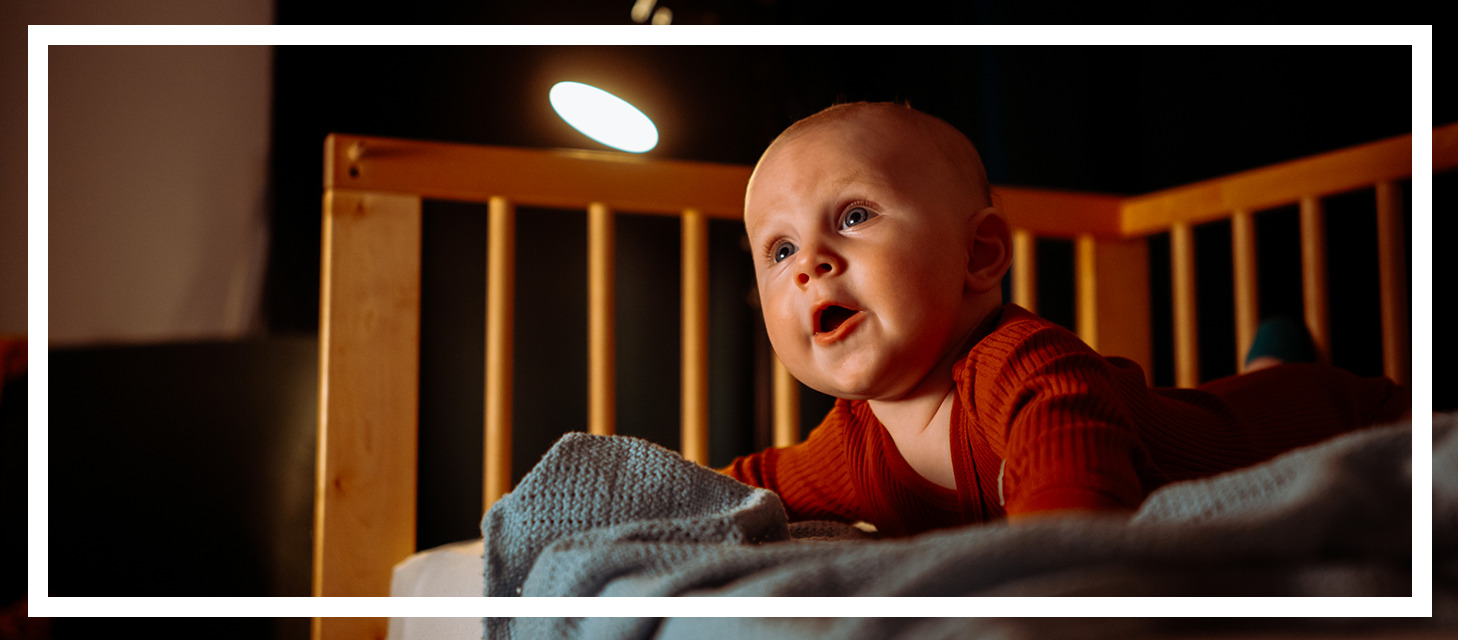
When your baby struggles to fall asleep or wakes up frequently during the night, it’s important not to panic. Instead, stay calm and focus on finding gentle, effective ways to help your little one regain healthy sleep patterns.
Sometimes, simply offering reassurance and creating a calm, consistent sleep environment can be enough to help your baby sleep more peacefully. Sticking to regular routines—both at bedtime and throughout the day—can also encourage more restful nights. By staying attentive to your baby’s needs and making a few simple adjustments, you can gently guide them toward more settled sleep.
Still, your little one may find it hard to fall asleep on their own or resist bedtime altogether. So, what can you do to help your baby sleep better ? How can you recognize and prevent baby sleep problems before they begin? Let’s take a closer look at your baby’s sleep needs—and the common factors that can disrupt their rest.
Recognizing Baby Sleep Problems
It's important to recognize the most common baby sleep problems in order to find effective ways to help your little one sleep better. Some babies may struggle to fall asleep due to emotional factors like separation anxiety or fear of the dark. Others may resist bedtime altogether, leading to restless nights for the whole family.
Here are the main signs and symptoms you should watch out for:
- Crying frequently during the night
- Refusing to go to bed at the usual time
- Tantrums before bedtime
- Persistent fears or anxiety at night
- Difficulty falling asleep quickly
- Restless nights and frequent wake-ups
- More aggressive behavior than usual
- Slower growth due to lack of quality sleep
- Sleeping less than recommended for their age
Of course, baby sleep evolves rapidly—especially during the first year! The signs to watch for will vary depending on your baby’s age.
👉 From 0 to 3 months:
Your baby’s sleep pattern alternates between “active” and “quiet” phases. During active sleep, your baby might frown, appear upset, move around, or even open their eyes. Don’t panic—these signs don’t mean your baby is awake. In fact, they’re already asleep. Avoid picking them up at this stage, as it might wake them. As long as your baby sleeps 16 to 17 hours a day and wakes every 3 to 4 hours, sleep problems are unlikely at this age.
👉 From 3–4 months onward:
Your baby’s sleep is already evolving. Active sleep phases begin to decrease, and your baby starts learning the difference between day and night. While they still need around 14 hours of sleep per day, it becomes easier to settle them at night, and daytime alertness gradually increases. If this isn't happening yet, don't worry—every baby develops at their own pace. The key now is to stick to consistent daily routines (meals, bath, etc.) and keep the room dark during naps.
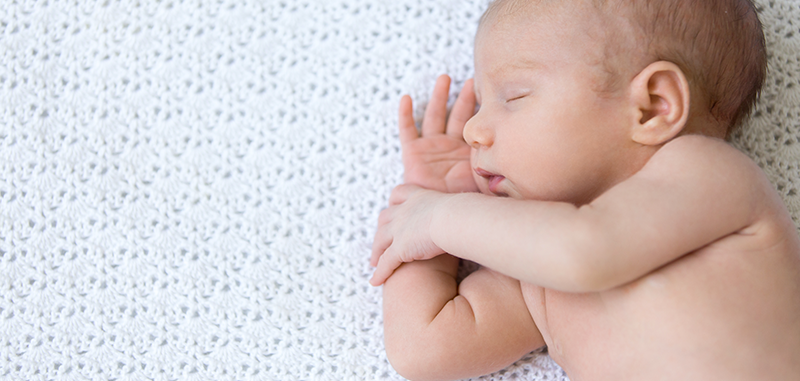
What Are the Most Common Baby Sleep Problems?
Sleep problems in babies can take many forms. It's important to understand that they may sometimes be linked to temporary or ongoing health conditions such as reflux, asthma, hypothyroidism, or bronchitis.
Here are the most frequently mentioned issues listed in the book La Maison des Maternelles: Le guide des parents épanouis—a resource we highly recommend for parents.
To discover our tips & tricks for dealing with nightmares, check out our complete guide: Child Nightmares: How to Get Rid of Them for Good!
Gripped by overwhelming panic, nothing seems to help them calm down. But after a few minutes, your baby falls back asleep on their own. The next morning, everything seems normal, and your little one remembers nothing. Night terrors are very different from nightmares. In fact, they’re more similar to sleepwalking!
During these episodes, it’s important not to wake your baby—even if it’s hard to resist. They won’t hear or see you anyway. These episodes often signal that your child isn’t getting enough sleep during the day or is struggling to express strong emotions.
Usually, this phase is temporary and lasts only a few days. If the issue becomes frequent, it may be a sign that the amount of daytime sleep is too low or that your child simply needs more attention.
Check your baby’s room carefully (temperature, crib, etc.). If your baby still struggles to fall asleep, it could be due to teething. For some babies, this process can be especially painful. Lying down can increase the discomfort, making it even harder to fall asleep.
Consider elevating your baby’s head with a firm pillow to ease the pressure. You can also try homeopathic remedies. During the day, don’t hesitate to give your baby a teething toy to chew on—the pressure on the gums can be soothing.
Later on, your child may struggle to fall asleep if their meal contains too much protein, fat, or sugar. Be sure to keep an eye on what goes on their plate!
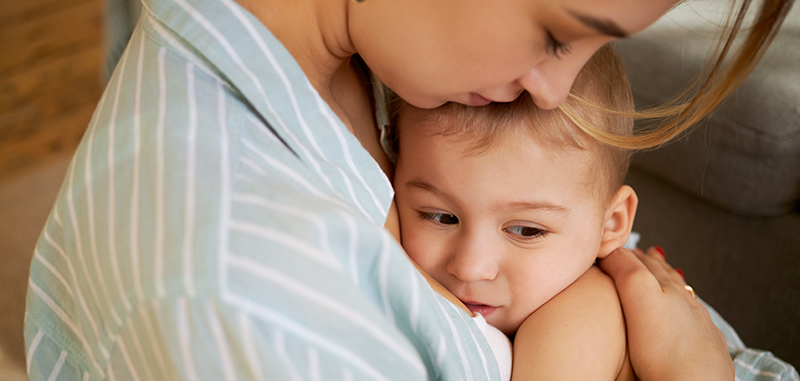
Baby Sleep Problems: A Need for Security?
It's important to understand that many baby sleep problems can occur when your little one doesn’t feel fully safe or soothed. Every situation is unique, but there are common signs to look out for.
For some babies, traumatic births can make it difficult to build a calm connection in the first few months—even unconsciously. That emotional distance may be sensed by the baby and lead to sleep disturbances.
Sudden changes in daily life—whether at home or at daycare—can also play a role. At this stage, the most important ingredients for restful sleep are routine and stability. Even small disruptions, which might seem trivial to us adults, can trigger a period of adjustment and lead to disturbed sleep.
Finally, to sleep well, a baby needs to feel calm and secure. If the day went smoothly and you spent quality time with your little one, it can greatly increase the chances of a peaceful night’s sleep.
How to Prevent Baby Sleep Problems
It's essential to put in place consistent and age-appropriate strategies to help your baby sleep better. A regular bedtime routine, a calming sleep environment, and avoiding unnecessary stimulation before bed are all highly recommended.
Practical tools like nightlights or musical mobiles can also help soothe your baby and ease them into sleep. To support a stable and predictable sleep rhythm, we recommend using our REMI baby monitor. With its multiple features (monitor, nightlight, lullaby player, day/night alarm), REMI helps parents build healthy habits. For little ones who resist bedtime, REMI can even act as a mediator: “When REMI is asleep, it’s time for you to sleep too!” Many parents have seen encouraging results after just a few days of use. Learn more about REMI here: REMI, the smart connected baby monitor!
Rule #1 to avoid baby sleep problems is consistency and stability. To help you get started, here are a few tips to follow:
A soft nightlight can help set a calming, reassuring mood for your little one. It's essential to maintain a peaceful and quiet environment before bedtime by avoiding unnecessary stimulation.
Regular naps can improve overall sleep quality and help prevent sleep problems. Respecting this need for rest is key to helping your baby grow into a healthy and happy child.
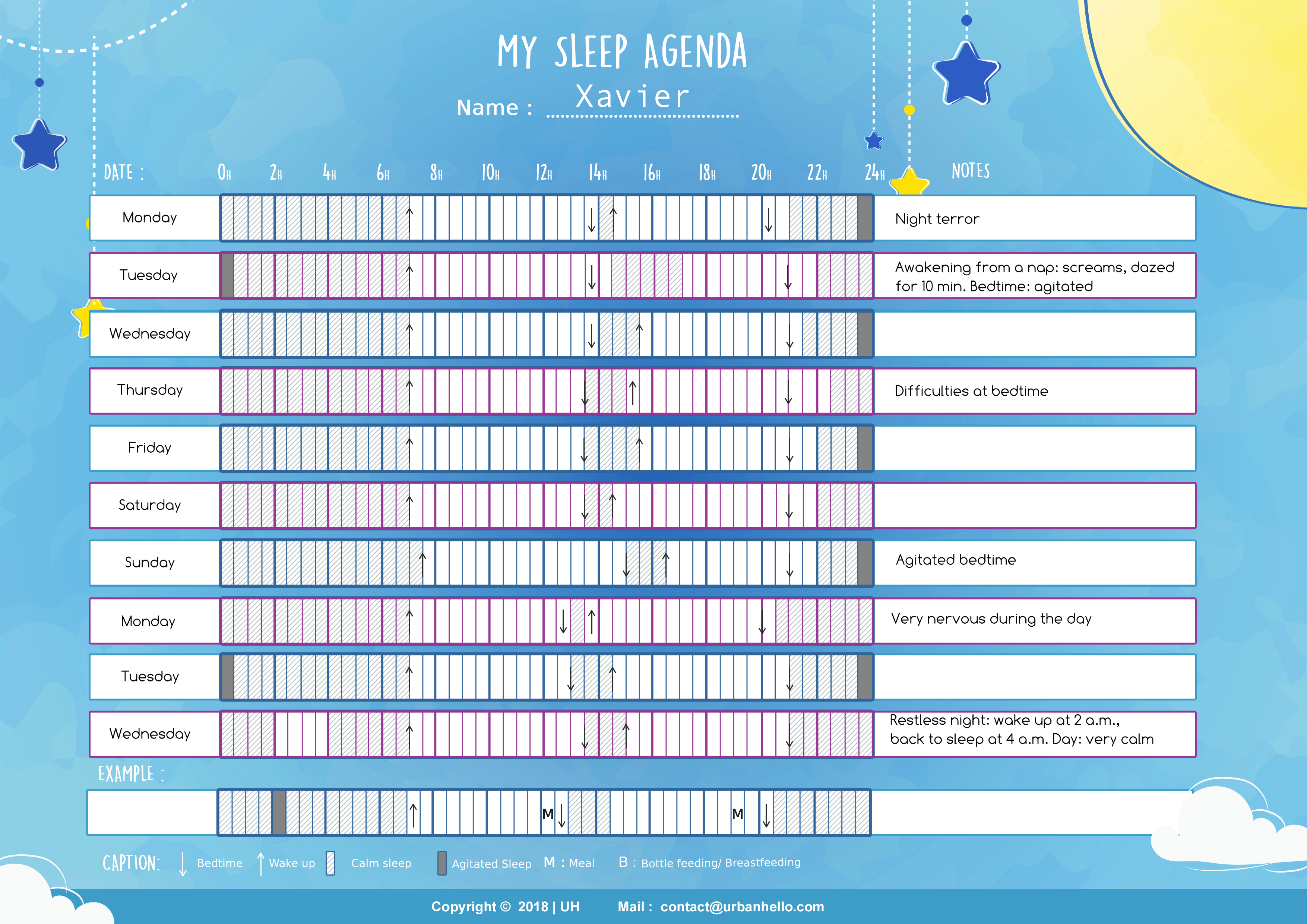
When Should You Seek Help for Your Baby’s Sleep Problems?
You should consult a specialist if:
- It takes more than 30 minutes for your baby to fall back asleep and they wake up frequently for more than 20 minutes.
- The sleep problems disrupt the rest of the family’s sleep as well.
- The baby’s sleep issues have an impact on their mood or energy during the day.
- You are concerned about your baby’s health.
KEY TAKEAWAY
In summary, no matter the type of sleep problem your baby is experiencing, it’s a sign of discomfort. Whatever the symptoms, it’s important to identify what might be causing the change. The priority is to reassure your baby and give them what they need! If it means Mom or Dad has to stay close for a few nights to help them sleep, don’t hesitate. By creating a calm and secure atmosphere and showing your little one extra attention, you’ll help build the perfect environment for better sleep.
By following these tips and staying patient, you'll support your baby in sleeping better—and enjoying calmer, more restful nights.
Discover REMI
THE SMART BABY MONITOR 😊
REMI and its app bring together everything you need to manage your baby’s sleep!
Its mission? Helping families sleep better — from birth up to age 10.
I bought REMI for my 4-year-old son who didn’t want to sleep alone anymore after his little sister was born. Thanks to the remote wake-up system and bedtime stories I can play from a distance, the issue is completely resolved! I 100% recommend this purchase!

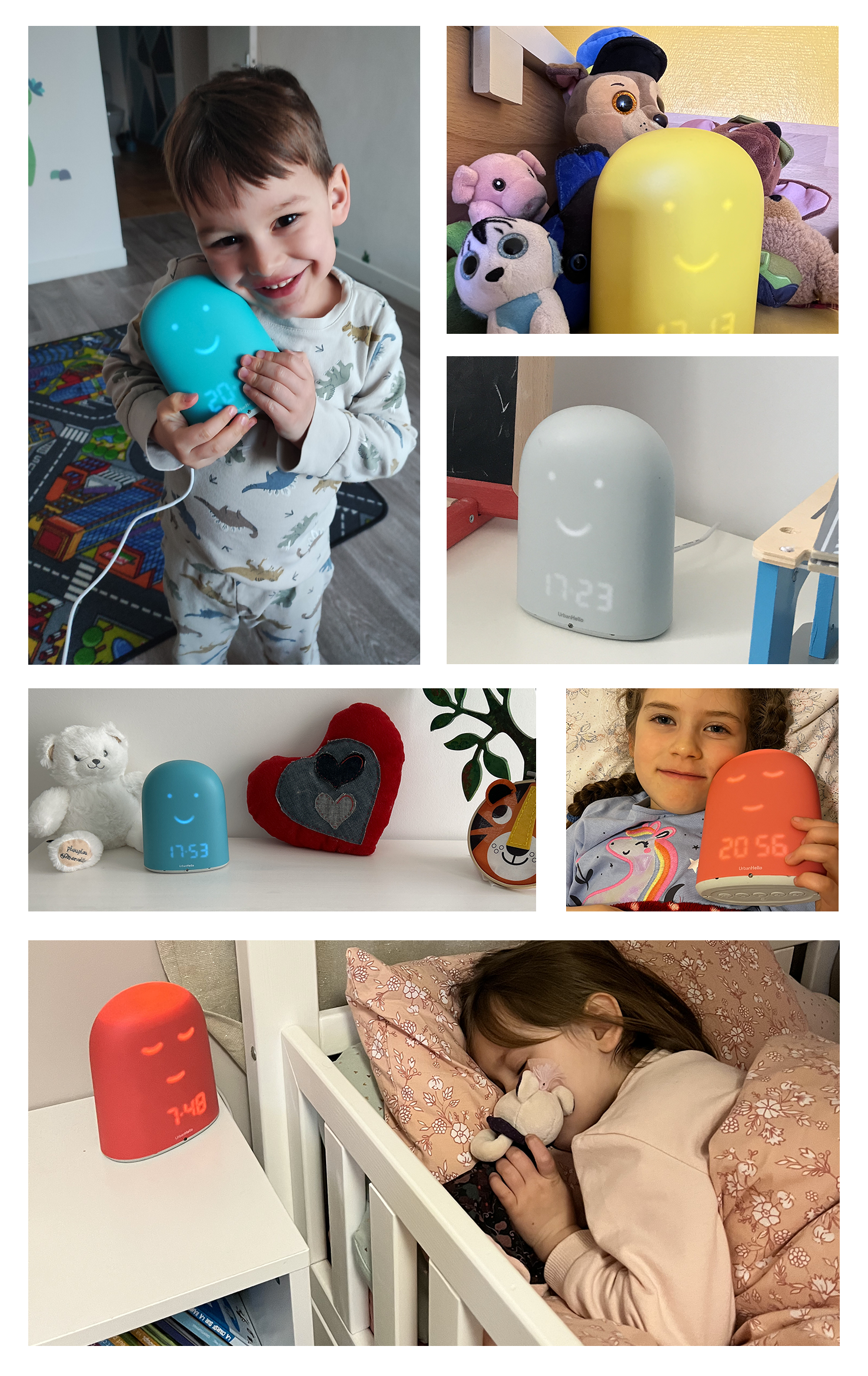




 My Child Won’t Sleep Alone: How to Help Them Gain Independence
My Child Won’t Sleep Alone: How to Help Them Gain Independence
 Letting Baby Cry It Out: Effective, But At What Cost?
Letting Baby Cry It Out: Effective, But At What Cost?
 White noise for baby : a scientific research !
White noise for baby : a scientific research !
 What are the positive effects of napping on memory?
What are the positive effects of napping on memory?
 What Time Should Your Child Go to Bed? The Ideal Bedtime by Age!
What Time Should Your Child Go to Bed? The Ideal Bedtime by Age!